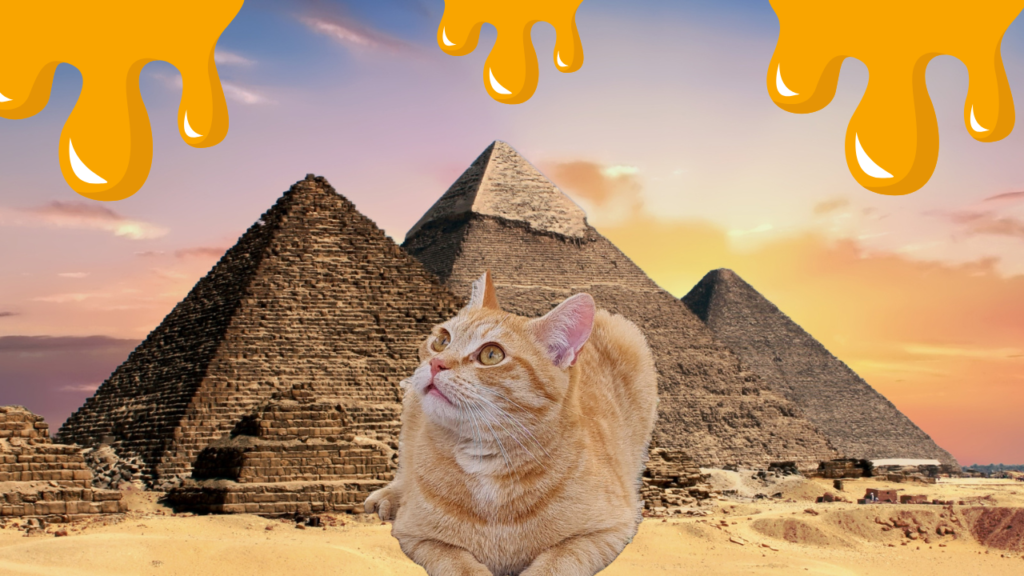¿Sabías que la miel nunca caduca? Así es, este delicioso oro líquido puede durar siglos sin echarse a perder, y la ciencia tiene mucho que decir al respecto. Desde tumbas de faraones hasta nuestras alacenas modernas, la miel ha sido testigo del paso del tiempo sin perder su esencia.
Hoy, en The Curious Pancho, te contamos por qué la miel es uno de los alimentos más duraderos del planeta… y también uno de los más fascinantes.
🏺 Un alimento milenario que sobrevive a la historia
Desde la antigüedad, la miel ha sido mucho más que un simple endulzante. En el antiguo Egipto, se utilizaba como ofrenda sagrada, medicina y parte de rituales religiosos. De hecho, en algunas tumbas de faraones se encontraron vasijas llenas de miel perfectamente conservada… ¡después de más de 3.000 años!
Para los griegos y romanos, era un símbolo de salud y longevidad. En la Edad Media, era uno de los ingredientes más valiosos en remedios caseros. Y hoy, sigue endulzando nuestras vidas con la misma intensidad que hace milenios.
🔬 ¿Por qué la miel no se pudre?
La clave está en sus propiedades únicas:
- 💧 Tiene muy poca agua, lo que impide la proliferación de bacterias y hongos.
- 🍋 Su pH es ácido, creando un entorno hostil para microorganismos.
- 🐝 Las abejas agregan una enzima especial, llamada glucosa oxidasa, que al mezclarse con el néctar genera peróxido de hidrógeno, un antimicrobiano natural.
Todo esto convierte a la miel en un entorno prácticamente inhabitable para cualquier organismo que cause descomposición. Por eso, puede durar siglos sin estropearse.
🍽️ La miel en la cocina de hoy
En la actualidad, la miel es un ingrediente versátil que va mucho más allá de endulzar infusiones. Se usa en:
- Postres y repostería
- Aderezos y salsas
- Marinados
- Productos de panadería
- Incluso en cosmética natural
Su textura, sabor profundo y capacidad para conservarse la hacen ideal para cualquier despensa. Y lo mejor es que no necesitas preocuparte por su fecha de caducidad.
📺 ¿Quieres más datos como este? Pancho te los cuenta en vídeo
Si te gustan estas curiosidades que mezclan historia, ciencia y naturaleza, te invitamos a explorar el canal de YouTube de The Curious Pancho.
Cada semana, nuevos vídeos con datos que no sabías que necesitabas saber:
👉 Descúbrelo aquí
🧠 Datos curiosos sobre la miel
- 🐝 Una abeja produce solo una cucharadita de miel en toda su vida.
- 🔥 La miel puede cristalizar, pero eso no significa que esté mala. Solo caliéntala suavemente.
- 🧪 La miel tiene propiedades antibacterianas y se ha usado para curar heridas.
- 🌍 Cada tipo de flor da lugar a una miel con color, sabor y aroma distintos.
💬 ¿Tienes miel en casa?
La próxima vez que la veas en tu estantería, recuerda: ese frasco esconde siglos de historia, ciencia natural y un toque de magia.
¿Conocías este dato? ¿La usas en tu día a día? Cuéntamelo en los comentarios, y no olvides seguir curioseando con Pancho 😺








